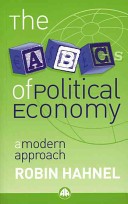Evolutionary Theory Does Not Justify Greed
Human nature as it now exists was formed in accord with the laws of evolution under conditions pertaining well before recorded human history. Fossils discovered in Ethiopia and Kenya now date human ancestors back at least 5 or 6 million years. Distinctly human species arose in Africa at least 2 million years ago, while present evidence indicates that modern humans are only about 100,000 years old. Therefore the conditions relevant to which genetic mutations were advantageous and which were not are the conditions prevailing in central Africa between 6 million and 100,000 years ago. It is often noted that the last 10,000 years of human history – so called “historic time,” the time period we know much about – has been fraught with war, conquest, genocide, and slavery. And it is often speculated that under those conditions people with a genetic disposition to aggression and vengeance, for example, might have been well suited to survival. But historic time is only a tenth of the time modern humans have roamed the earth, and is only an evolutionary instant compared to the 6 million years during which the human species evolved from our common ancestry with apes and chimpanzees. This means it is impossible for the historical conditions we know something about to have selected genetic characteristics significantly different from those humans already had 100,000 years ago. Therefore, it is not possible that the human history we know something about – our history of war, oppression, and exploitation – has made our genetic “nature” hopelessly aggressive, vindictive, or power hungry. Throughout the 10,000 years of recorded history we have been, and remain, genetically what we were at the outset. To believe otherwise is to believe that a baby plucked from the arms of its mother, moments after birth, 10,000 years ago, and time-traveled to the present would be genetically different from babies born today. And this is simply not the case.
But what is the relevance of this to perceptions about “human nature?” The point is that whether conditions during the past 10,000 years favored survival of the more aggressive and vindictive, or survival of those who cooperated more successfully, is irrelevant to what “human nature” is really like. Because the conditions during known history played no role in forging our genetic nature. The relevant conditions for speculations concerning genetic traits promoting survival were the conditions that prevailed in Africa 6 million to 100,000 years ago. And whether or not the conditions human ancestors lived in during that lengthy period favored genetic traits conducive to aggression any more than traits conducive to successful cooperation, is very much an open question.
This does not mean that our 10,000-year history of war, oppression, and exploitation has had no impact on people’s attitudes and behavior today. These aspects of our history have had important effects on our consciousness, culture, and social institutions that cannot be ignored or “willed away.” But the point is that known history has left ideological and institutional residues, not genetic residues. Only conditions in Africa 6 million years ago had any influence on genetic selection. So it is perfectly possible that under institutional conditions that are very different from those we have today, and the different expectations that go with them, that human behavior – the combined product of our genetic inheritance and our institutional environment – could be quite different than it is presently. This simple fact is something apologists for capitalism ignore when they argue that people are doomed to the economics of competition and greed by “human nature.” Instead it is just as plausible that an economics of equitable cooperation is compatible with our genetic make-up, and perfectly possible under different institutional conditions – popular opinion to the contrary, not withstanding.
Notes:
Many economic theories relying on "human nature" assume we are greedy, but this is not supported by the evidence. We might just as likely be generous and that is our evolutionary advantage.
Folksonomies: evolution economics human nature greed
Keywords:
human nature (0.994914 (neutral:0.000000)), conditions (0.918470 (positive:0.012092)), human history (0.839799 (negative:-0.479050)), Distinctly human species (0.723573 (negative:-0.394360)), modern humans (0.715863 (neutral:0.000000)), historic time (0.699647 (neutral:0.000000)), conditions human ancestors (0.685327 (negative:-0.388204)), different institutional conditions (0.670730 (neutral:0.000000)), time modern humans (0.668306 (neutral:0.000000)), genetic traits (0.622073 (negative:-0.037969)), evolutionary advantage (0.537123 (positive:0.791895)), genetic mutations (0.533081 (neutral:0.000000)), Evolutionary Theory (0.532400 (negative:-0.313459)), historical conditions (0.530923 (negative:-0.540613)), economic theories (0.529869 (negative:-0.313459)), genetic disposition (0.529621 (negative:-0.462276)), conditions people (0.528061 (negative:-0.462276)), genetic characteristics (0.524198 (negative:-0.540613)), human nature. (0.513898 (neutral:0.000000)), recorded history (0.512769 (neutral:0.000000)), genetic selection (0.512710 (negative:-0.573174)), genetic residues (0.511814 (neutral:0.000000)), genetic nature (0.511436 (negative:-0.201778)), relevant conditions (0.510329 (positive:0.350235)), human behavior (0.510272 (neutral:0.000000)), central Africa (0.510268 (neutral:0.000000)), genetic inheritance (0.507826 (neutral:0.000000)), common ancestry (0.506415 (neutral:0.000000)), genetic make-up (0.506200 (neutral:0.000000)), willed away. (0.502492 (positive:0.296523))
Entities:
Africa:Continent (0.924097 (negative:-0.205766))
Concepts:
Genetics (0.975786): dbpedia | freebase | opencyc
Evolution (0.901973): dbpedia | freebase | opencyc
Natural selection (0.861585): dbpedia | freebase
DNA (0.758892): website | dbpedia | freebase | yago
Charles Darwin (0.717376): dbpedia | freebase | opencyc | yago
Prehistory (0.712122): dbpedia | freebase | opencyc
Africa (0.707423): dbpedia | freebase | yago
Human (0.673666): dbpedia | freebase | opencyc





